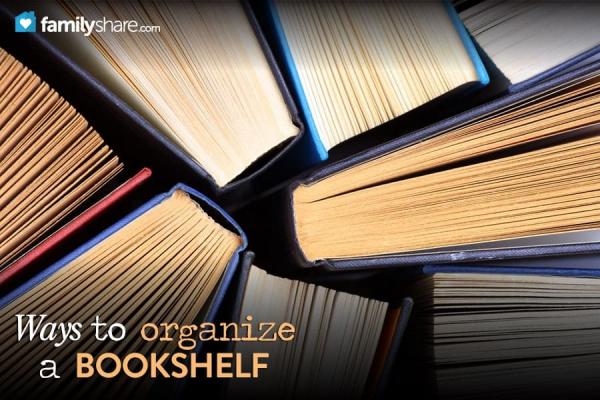
For many people, bookshelves in the home are a source of frustration. Shelves can get so crowded that books become hard to find, look sloppy, or become crammed together in such a way they become damaged. Another complication is that many homes have bookshelves in multiple places, making it difficult to locate specific volumes quickly. Here are some ideas for ways to organize your family's books:
Alphabetical
This method is one of the best for being able to locate a certain book in a large collection. Choose whether you'd like to alphabetize by author or title (it may be easier to recall a book's title than its author). If you want to stick to a purely alphabetical system, decide early on how the system will flow from one bookshelf to another.
Alphabetical by category
This is similar to the way libraries sort their books. Books of similar subjects are grouped together (for example: biographies, reference books, cookbooks, fiction, etc.) and then alphabetized within their groups.
Size
. Sometimes the best way to utilize bookshelf space is to organize your books by size, since some books are too tall to fit on certain shelves. This may seem like a less-organized method, but many people find it makes the best use of the space that is available. Additionally, many readers find themselves recalling more what a book looks like than what it was called.
Color
Some people love the look of blocks of color on their shelves. Although less useful for locating specific works, this method can pleasantly complement the overall look of a room.
Owner
A common way to sort books is to have a bookshelf in each family member's bedroom, containing the books that belong to them. Books on these individual shelves can then be further organized using one of the above methods.
The super-organized person may like to make a computerized record of all their books. This list that can be searched by title or author, and will give the book's location in the house. For this method to work, the family members need to be particular about putting books back in their designated place.
Just as with other belongings, a book collection can need pruning. A full or even half-full bookshelf often looks nicer than one that is overflowing and messy. Consider donating unread or uninteresting books to a charitable organization. At least this way, someone else might benefit from your unneeded book. You can intersperse books in a lightly loaded bookshelf with photos or keepsakes for an interesting look. Consider displaying large books sideways, spines outward, as a way of fitting them into short shelves and breaking up the appearance of a shelf of solid books.
Books are precious belongings - store them in a way that allows them to be both used and admired.

